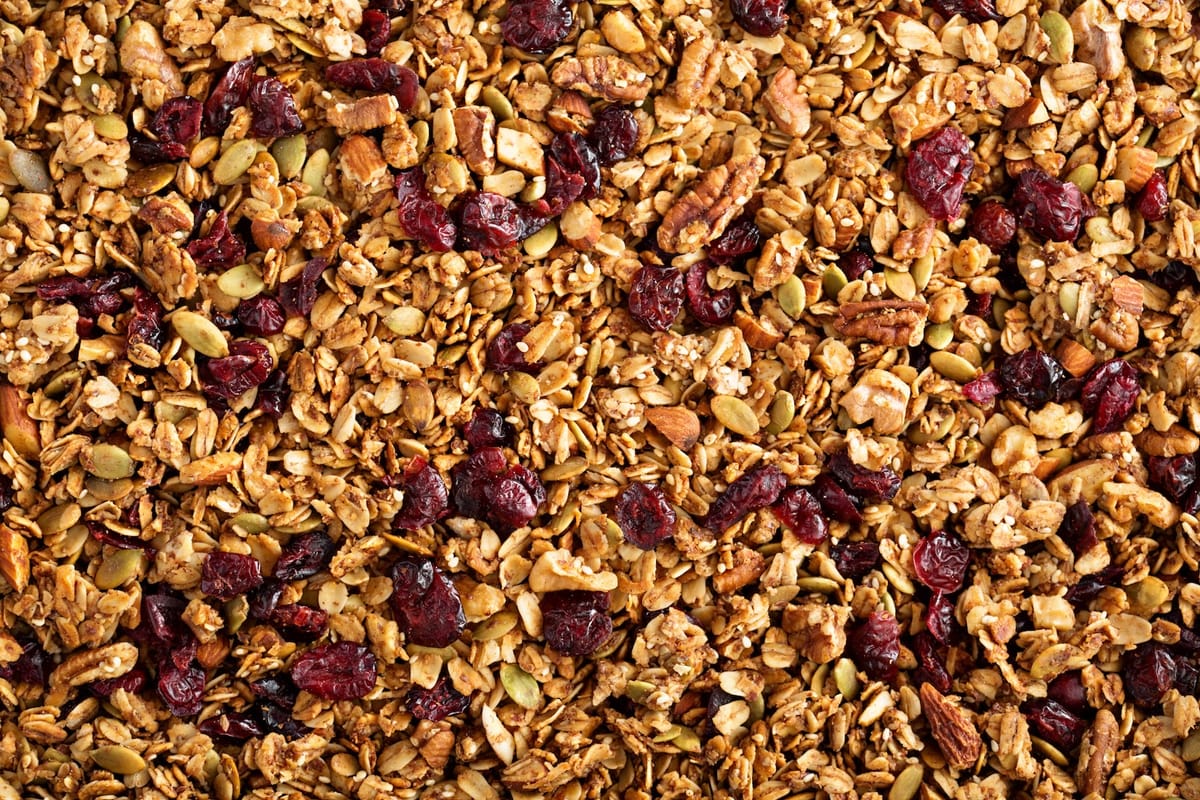

Simple Supplement, Big Brain Benefits
A groundbreaking study has revealed that a daily fiber supplement can significantly improve brain function in people over 60, offering hope for maintaining sharp minds as we age. Researchers at King's College London found that prebiotic fiber supplements, specifically inulin and fructo-oligosaccharides (FOS), enhanced memory and cognitive performance in just 12 weeks. This discovery highlights the connection between gut health and brain function, a relationship that scientists are increasingly exploring.
The study involved 36 pairs of twins, all over 60, with one twin receiving the prebiotic supplement and the other a placebo. Participants also performed resistance exercises and consumed protein powder, but it was the fiber supplement that drove the cognitive improvements. Dr. Mary Ni Lochlainn, the study's first author, emphasized the potential of this affordable solution, stating, 'We are excited to see these changes in just 12 weeks. This holds huge promise for enhancing brain health and memory in our aging population.'
The Gut-Brain Connection
The key to these findings lies in the gut-brain axis, a communication network between the digestive system and the brain. Prebiotic fibers like inulin and FOS feed beneficial gut bacteria, such as Bifidobacterium, which increased significantly in the study participants. These bacteria produce compounds that can cross into the brain, potentially reducing inflammation and supporting cognitive health.
Dr. Donna Newsome, a neurologist at Texas Health Presbyterian Hospital Plano, explained, 'When you eat anything, it gets broken down in your gut. And these prebiotics are just basically those supplements that have broken down to your gut. It gets metabolized into the bloodstream and fortunately can get past the blood-brain barrier into the brain and help your brain.' This process underscores why a healthy gut may lead to a healthier mind, particularly as we age.
Practical Steps for Better Brain Health
The study's participants who took the prebiotic supplement showed better performance on memory tests, including the Paired Associates Learning test, which can detect early signs of Alzheimer's disease. They also demonstrated improved reaction times and processing speeds, critical for everyday tasks like driving or preventing falls. Professor Claire Steves, senior author of the study, highlighted the accessibility of these supplements, saying, 'These plant fibers, which are cheap and available over the counter, could benefit a wide group of people in these cash-strapped times. They are safe and acceptable too.'
Experts recommend aiming for 25 to 35 grams of total fiber daily, including 10 to 20 grams of prebiotic fiber from foods like bananas, garlic, onions, leeks, asparagus, and artichokes. Nina Olsen, a registered dietitian, advised, 'Think variety over volume. Rotating fiber sources builds a stronger, more resilient microbiome.' For those who struggle to get enough fiber from food, supplements like inulin, FOS, or psyllium husk can fill the gap.
Why Fiber Matters Beyond the Brain
Beyond cognitive benefits, prebiotic fibers support digestive health, help regulate blood sugar, and promote feelings of fullness, which can aid in weight management. They also enhance the absorption of essential minerals like calcium and magnesium, vital for bone health. Jessica Cording, a dietitian and author, noted that psyllium husk, another common fiber supplement, 'helps with building stool bulk and can help you to feel full.' These additional benefits make fiber supplements a practical choice for overall wellness.
However, experts caution that fiber alone isn't a magic bullet for brain health. Dr. Newsome stressed a holistic approach, saying, 'Brain health is not just about eating well. Brain health is also exercising. Getting a good amount of sleep, not just for a few hours. At least, you know, eight to nine hours sleep a night. It's meditation.' Combining fiber supplements with exercise, sleep, and mental stimulation offers the best chance for maintaining cognitive vitality.
Food Sources
Good dietary sources of prebiotics include:
- Vegetables: Chicory root, artichoke, garlic, onions, leeks, asparagus
- Fruits: Bananas (especially unripe), apples, berries
- Whole grains: Oats, barley, wheat bran
- Legumes: Lentils, chickpeas, beans
- Root vegetables: Yams (sweet potatoes), carrots, parsnips, turnips
- Nuts and seeds: Flaxseeds, almonds
Looking Ahead
The study's remote design, using video calls and online tests, showed that such research can be conducted without requiring participants to travel, making it easier to include older adults in future trials. Researchers plan to explore whether these cognitive benefits persist over longer periods and in larger groups. For now, the findings suggest that a simple, affordable supplement could make a meaningful difference in the lives of those over 60, supporting both their minds and their independence.
Dues are $12 per year. Member benefits:
✅ Ad-Free Website Viewing
✅ Advocacy for Republican Seniors
✅ 120+ Senior Discounts
✅ Member Only Newsletters